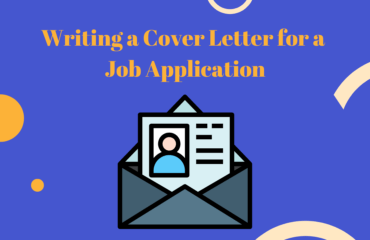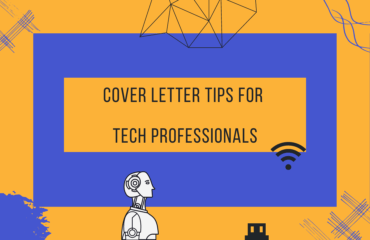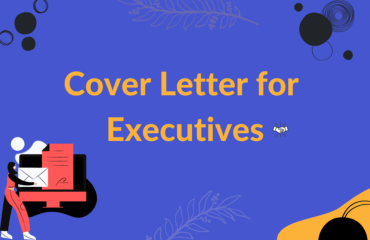Table of Contents
Landing a job is indeed a challenge for many professionals. But what’s even more complicated is creating career documents with little to no experience when trying to apply for a particular position. You might be left out thinking, “How do I start?”, “What experiences could I include to showcase that I am an ideal candidate for the job?” or “How am I going to stand out?”.
Fresh graduates often spend a lot of time perfecting their resumes and treat cover letters as an afterthought. While a resume is a powerful tool during job applications, you also need a stellar cover letter to sell yourself better and make a positive first impression. This serves as an extension of your resume highlighting the value you can offer and allowing hiring managers to get to know you on a deeper level. In this article, we will share effective tips on writing a cover letter to increase your chances of landing your first job, no matter how much experience you may have.
1. Analyze the job requirements
As a recent graduate, the objective of your cover letter is to convince hiring professionals that you are a capable hire despite having minimal hands-on experience in the industry. Though it can be quite challenging, understanding what the position requires can help you do the trick. This way, you can determine what skills to highlight, allowing you to better align the content of your cover letter with the company’s needs.
Reading through the job description more than once is the best way to understand the requirements of the position you’re applying for. Then, take note of the skills, terms, or phrases that repeatedly appear throughout the job post. These are the information you can use and add sparingly to your cover letter to show prospective employers that you have what they’re looking for and are actually a good fit for the job.
However, keep in mind to include only the skills that you actually possess. Don’t go overboard by adding details you don’t really know about just to demonstrate you’re a perfect match for the role. Doing so can do you more harm than good. Once your prospective employer finds any dishonesty, you can instantly lose your chance of advancing to the next stage of the application process.
2. Start with a proper opening
The first impression really matters. Hence, to start on the right foot, it is imperative to address your cover letter appropriately. Whenever possible, use the specific first name of the contact person after a professional salutation. For instance, you can say “Dear Jane”. Remember, personalization really makes a difference. So, make sure to do your research and use every available resource to find the name of the hiring manager.
We understand that it’s not always possible to know the name of the person responsible for hiring after spending a lot of time searching. In this case, you can use alternative greetings, such as “Dear Hiring Manager” or “Dear Finance Department Hiring Team”. Avoid using generic salutations like “To whom it may concern” or “Dear Sir/Madam” as these are too impersonal.
After properly greeting the contact person, introduce yourself in a brief yet attention-grabbing manner in the first paragraph of your cover letter. Tell them why you are writing by indicating which position you’re applying for, where you learned about the job, and what makes you a perfect fit. Highlight your skills relevant to the role and the value you can offer to the company’s benefit as a fresh graduate.
3. Demonstrate your fresh industry knowledge
Fresh out of college, it is understandable that you might lack real-world work experience. Nonetheless, good employers believe that fresh minds can bring new perspectives to their organizations that can lead to a range of business advantages. In fact, according to a study, many employers project hiring 7.2% more graduates from the class of 2021 than they did from 2020 graduates.
To demonstrate your potential to succeed, use your recent learning experiences to your advantage. Highlight specific coursework that is most relevant to the job requirements as well as the industry updates you’ve learned about while completing your degree. Doing so can demonstrate your capacity to help their business adapt to new industry practices or emerging technologies. If you are a graduate of a computer programming course, you can use the example below as a guide in drafting your cover letter.
During my four years at ABC University, I developed a genuine interest in computer programming and computer systems management. Through my comprehensive coursework, I have advanced my knowledge in programming languages, such as C++, Python, SQL, and JavaScript. In addition to this, I am currently taking certification courses in my free time to continue to expand my coding abilities. I believe that the knowledge and experience I have gained thus far will allow me to contribute significantly to your objectives as your next Computer Programmer.
4. Highlight your internship and other relevant experiences
You might be worried that you do not have anything to include as your work experience to prove the value you can bring to the table. Well, you don’t have to. Anything you did during the education that taught you skills valuable in your target industry can be considered a relevant experience. Whether it’s internships, extracurricular activities, part-time jobs, and social or volunteer work, as long as you can relate these back to the employer’s needs, you can mention these in your cover letter.
In addition, the school and independent projects you completed can also serve as solid evidence of your competencies. Describe how you contributed to every phase of the project and what the overall outcomes were. This can help you showcase your ability to work independently or with a team, solve problems, prioritize responsibilities, and deliver results. Below is an example of how you can demonstrate your relevant experiences.
During my time at XYZ University, I completed three marketing internships. This included working as a student marketing assistant in the admissions department of the university. I was tasked with drafting admission ad copy and scheduling and updating marketing campaign calendars to keep track of all marketing efforts. I also assisted a financial advising group’s marketing team, wherein I aided in designing infographics and other marketing collaterals. I am confident that my experiences thus far will allow me to become a valuable asset to CBA Incorporated’s marketing department.
5. Connect your skills and qualifications to the job requirements
Soft skills are in high demand. This is because employers believe that they play a crucial role in fostering a dynamic workforce. In fact, soft skills are considered to be more important than hard skills as they are much harder to replicate. While hard skills are critical to performing technical tasks in a job, some employers prefer to choose candidates with a stronger set of soft skills as these are more difficult to develop at times. On the other hand, hard skills can be easily taught through training.
To increase your chances of being considered for the role, make sure to showcase your personality traits and soft skills that make you a great fit for the job. Then explain how you will put these traits and skills to use to do the work well and benefit the company. Here are some of the most sought-after soft skills that you can highlight in your cover letter.
- Communication
- Organization
- Critical thinking
- Problem-solving
- Emotional intelligence
- Teamwork
- Creativity
- Time management
- Adaptability
- Flexibility
6. Convey your energy and enthusiasm
Employers understand that as a recent graduate, you have minimal hands-on experience. Thus, what they really want to see is that you are passionate about the job, enthusiastic about learning, and determined to prove yourself to the real world. You can do this by showing your motivation, explaining what excites you about the position, and why the company is an employer of choice to you.
To better convey your enthusiasm, researching the company before writing your cover letter is a must. This can help you gain better insight into what the company actually does, its mission statement, products and services, values, and work culture. So, if their values and culture align with your passion and career goals, make sure to mention them in your cover letter. Doing so can go a long way to impressing hiring professionals with your genuine interest in the job and the company as a whole.
As a fresh graduate, you know that you have much to offer. However, conveying your value as a potential employee can seem complicated due to your limited industry-related experience. But you don’t have to worry at all. Taking advantage of what you’ve learned and the relevant things you’ve accomplished during your education can help you stand out during your job search. For you to be able to do it in practice, we suggest following the tips we shared in this article. If you need further support, you can always reach out to us, and we would be happy to assist you in nailing your cover letter to land your first job out of college.











